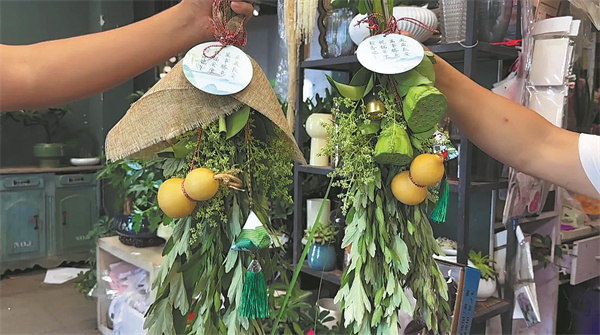

Up a livestream
At the Yiai Lake's dragon boat arena in Huanggang, before the official start of the festival, thousands of spectators cheer as an AI "conductor" gives instructions to rowers on how to coordinate the movement of the paddles. Real-time data is projected onto large screens.
For 54-year-old dragon boat captain Zhao Decheng, technology is now an accepted part of his cherished festival traditions.
"My grandfather said true power comes from the heart," he said pointing to himself, "not just arms".
His crew's prerace ritual remains unaltered, offering steamed zongzi to a carved dragon head dating from the Qing Dynasty (1644-1911). However, their mascot now has a discreet QR code attached that links to an introduction about its history and a craftsmanship certificate.
The county's Culture and Tourism Director Hu Xiaoyan said the monitoring of spikes in hotel occupancy rates correlates with excitement surrounding race heats. Each dragon boat drumbeat translates to economic momentum. "This isn't just sport," she said of the income the races help generate.
For the festival, they have organized citywide cultural and tourism activities, focusing on four key areas: discounted scenic spot admissions, high-quality event competitions, diverse cultural programming, and promotional campaigns to drive visitor engagement.
The intersection of the traditional and modern can be seen throughout the township.